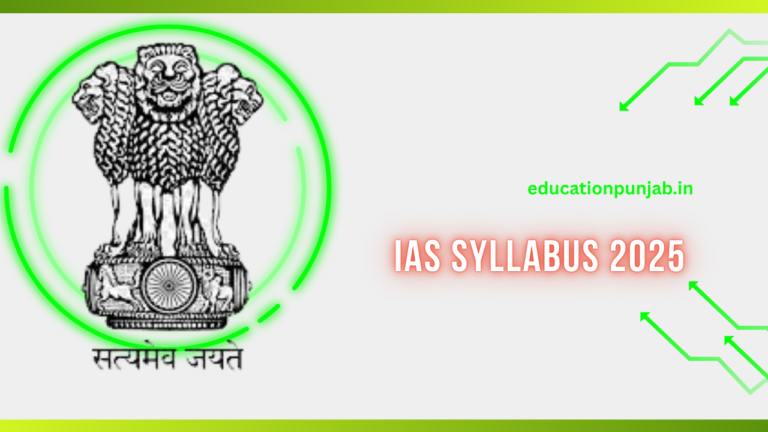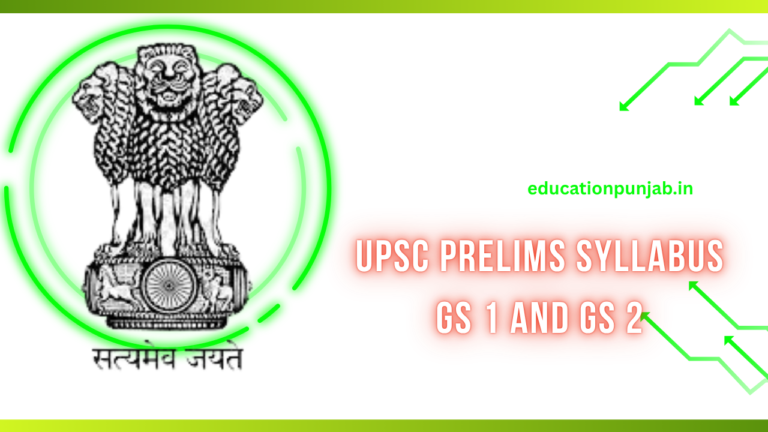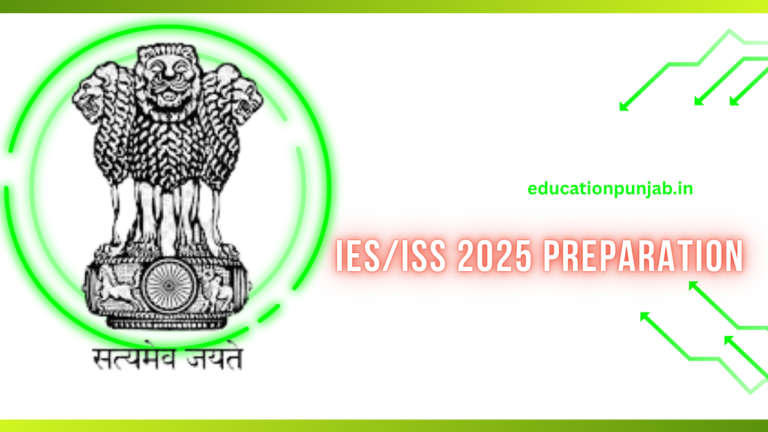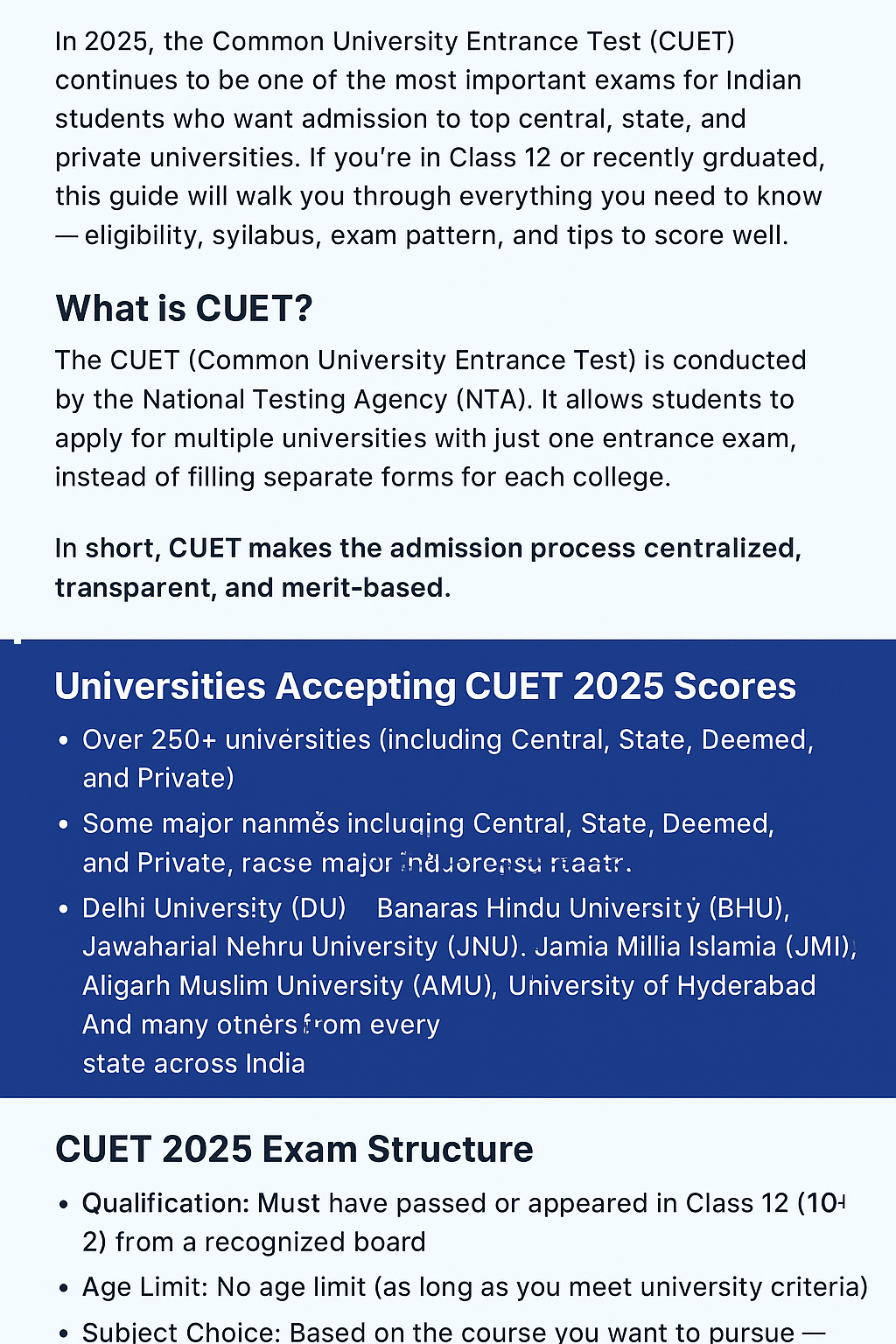
Complete UPSC CSE 2025 Preparation Guide
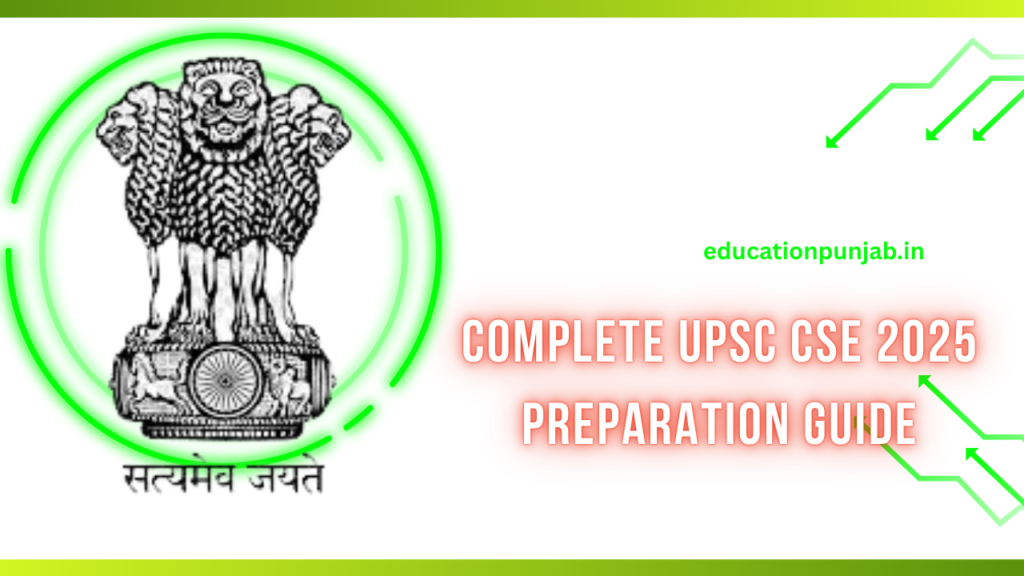
Complete UPSC CSE 2025-26 Preparation Guide
Complete UPSC CSE 2025 Preparation Guide: Preparing for the UPSC Civil Services Examination (CSE) is a rigorous process that demands a strategic approach, thorough understanding of the syllabus, and disciplined study habits. The UPSC CSE consists of three stages: Preliminary Examination (Prelims), Main Examination (Mains), and Personality Test (Interview). Below is a comprehensive guide to preparing for the UPSC exam, covering the full syllabus for Prelims and Mains, along with preparation strategies.
UPSC CSE 2025-26 Exam Structure
- Preliminary Examination (Objective, 400 marks):
- General Studies Paper I (200 marks): Tests general knowledge and awareness.
- General Studies Paper II (CSAT) (200 marks): Tests aptitude and is qualifying in nature (33% minimum).
- Purpose: Screening test to shortlist candidates for Mains; marks not counted in final merit.
- Main Examination (Descriptive, 1750 marks):
- Consists of 9 papers: 2 qualifying language papers, 1 essay paper, 4 General Studies papers, and 2 optional subject papers.
- Purpose: Tests in-depth knowledge, analytical skills, and writing ability.
- Personality Test (Interview) (275 marks):
- Assesses personality, leadership, and suitability for civil services.
- Total marks (Mains + Interview): 2025.
UPSC CSE 2025 2026 Syllabus Breakdown
1. UPSC CSE 2025 2026 Prelims Syllabus
General Studies Paper I (200 marks, 2 hours)
- Current Events: National and international importance.
- History:
- Ancient, Medieval, and Modern Indian History.
- Indian National Movement.
- Geography:
- Physical, Social, and Economic Geography of India and the World.
- Indian Polity and Governance:
- Constitution, Political System, Panchayati Raj, Public Policy, Rights Issues.
- Economic and Social Development:
- Sustainable Development, Poverty, Inclusion, Demographics, Social Sector Initiatives.
- Environment and Ecology:
- General issues on Environmental Ecology, Biodiversity, and Climate Change.
- General Science:
- Basic concepts and recent developments in science and technology.
General Studies Paper II (CSAT) (200 marks, 2 hours, Qualifying) for UPSC CSE 2025 2026
- Comprehension: Reading and understanding passages.
- Interpersonal Skills: Communication skills.
- Logical Reasoning and Analytical Ability.
- Decision Making and Problem Solving.
- General Mental Ability.
- Basic Numeracy: Numbers, relations, orders of magnitude (Class X level).
- Data Interpretation: Charts, graphs, tables, data sufficiency (Class X level).
Note: CSAT requires a minimum of 33% to qualify. Focus on practicing comprehension, reasoning, and basic math.
2. UPSC Mains Syllabus
The Mains exam consists of 9 papers, all descriptive, conducted over multiple days.
Qualifying Papers (300 marks each, not counted for merit)
- Paper A: Indian Language (choose one from the 8th Schedule of the Constitution, e.g., Hindi, Tamil, etc.).
- Comprehension, précis writing, translation, grammar, and essay writing (Matriculation level).
- Minimum qualifying marks: 25%.
- Paper B: English.
- Comprehension, précis writing, grammar, and essay writing (Matriculation level).
- Minimum qualifying marks: 25%.
Papers Counted for Merit
- Paper I: Essay (250 marks):
- Write essays on multiple topics, focusing on clarity, coherence, and conciseness.
- Topics may cover social issues, governance, environment, or philosophical themes.
- Paper II: General Studies I (250 marks):
- Indian Heritage and Culture: Art, literature, architecture from ancient to modern times.
- History: Modern Indian history, freedom struggle, world history.
- Geography: Physical, social, economic geography; natural resources, disasters.
- Paper III: General Studies II (250 marks):
- Governance: Constitution, polity, social justice, governance mechanisms.
- International Relations: India’s relations with neighbors, global issues, international organizations.
- Paper IV: General Studies III (250 marks):
- Technology: Science and tech developments, IT, space, nanotechnology, etc.
- Economic Development: Indian economy, agriculture, industry, infrastructure.
- Environment: Conservation, environmental impact, climate change.
- Security: Internal and external security, disaster management.
- Paper V: General Studies IV (250 marks):
- Ethics, Integrity, and Aptitude: Ethical theories, integrity in governance, case studies on ethical dilemmas.
- Paper VI & VII: Optional Subject (250 marks each):
- Choose one optional subject (e.g., History, Geography, Public Administration, Sociology, Literature of any language listed in the 8th Schedule).
- Each subject has two papers, covering in-depth topics aligned with graduation-level knowledge.
3. Personality Test (Interview, 275 marks)
- No defined syllabus; focuses on:
- Personality traits, leadership, and decision-making skills.
- Current affairs, personal background, and situational questions.
- Based on the Detailed Application Form (DAF) submitted by candidates.
Preparation Strategy for UPSC CSE
1. Understand the Syllabus and Exam Pattern
- Download and memorize the UPSC Syllabus 2025 PDF from the official UPSC website (upsc.gov.in).
- Break down the syllabus into micro-topics for focused study.
- Analyze previous years’ question papers to understand topic weightage and question trends.
2. Create a Study Plan
- Timeline: Start preparation at least 12 months before the Prelims (e.g., May 2025 exam requires starting by May 2024).
- Daily Schedule: Dedicate 8–10 hours daily, balancing static (core subjects) and dynamic (current affairs) portions.
- Morning: Current affairs (newspapers like The Hindu, Indian Express).
- Afternoon: Core subjects (History, Polity, etc.).
- Evening: CSAT practice or answer writing.
- Weekly Goals: Cover 1–2 subjects per week, with revision on weekends.
3. Study Resources
Core Books
- NCERTs: Start with Class 6–12 NCERTs for History, Geography, Polity, Economy, and Science for foundational knowledge.
- Standard Reference Books:
- History:
- India’s Struggle for Independence by Bipan Chandra.
- A Brief History of Modern India by Spectrum.
- Geography:
- Certificate Physical and Human Geography by G.C. Leong.
- Oxford Student Atlas.
- Polity:
- Indian Polity by M. Laxmikanth.
- Economy:
- Indian Economy by Ramesh Singh.
- Economic Survey (annual).
- Environment:
- Environment by Shankar IAS Academy.
- Ethics:
- Lexicon for Ethics, Integrity & Aptitude by Chronicle.
- Current Affairs:
- Newspapers: The Hindu, Indian Express.
- Magazines: Yojana, Kurukshetra.
- Monthly compilations: Vision IAS, InsightsIAS.
Optional Subject
- Choose based on interest, background, and resource availability. Popular choices include Public Administration, Sociology, History, and Geography.
- Refer to standard books specific to the optional subject (e.g., Sociology by Haralambos & Holborn for Sociology).
4. Current Affairs
- Read newspapers daily and make concise notes.
- Follow monthly current affairs magazines or online platforms (e.g., Vision IAS, Drishti IAS).
- Link current events to static syllabus topics (e.g., relate a new environmental policy to the Environment syllabus).
5. Practice and Revision
- Prelims: Solve 50–60 mock tests to improve speed and accuracy. Use platforms like InsightsIAS, Vision IAS, or Testbook.
- Mains: Practice answer writing daily (1–2 answers) focusing on structure: introduction, body, conclusion. Join a test series (e.g., Vision IAS, ForumIAS).
- Revision: Revise notes weekly and monthly to retain concepts. Use mind maps or one-pagers for quick recall.
6. CSAT Preparation
- Focus on comprehension, logical reasoning, and basic numeracy.
- Practice previous years’ CSAT papers and mock tests.
- Books: CSAT Manual by Arihant or Analytical Reasoning by M.K. Pandey.
7. Optional Subject Strategy
- Study the syllabus thoroughly and cover all topics.
- Solve past years’ papers to understand question patterns.
- Join a test series for answer writing practice.
8. Interview Preparation
- Prepare a detailed DAF (Detailed Application Form) analysis covering education, hobbies, and work experience.
- Stay updated on current affairs and national issues.
- Practice mock interviews with coaching institutes or mentors.
9. Time Management and Discipline
- Divide study time into 3–4 hour slots with short breaks.
- Avoid distractions; limit social media use to credible UPSC-related content.
- Maintain a healthy lifestyle with exercise, diet, and sleep to stay focused.
10. Coaching vs. Self-Study
- Coaching: Optional but helpful for structure and mentorship. Reputed institutes include Vajiram & Ravi, Vision IAS, and Drishti IAS.
- Self-Study: Possible with discipline. Use online resources like ClearIAS, BYJU’S, or UPSCprep.com for free study materials and mock tests.
Additional Tips
- Analyze Previous Years’ Papers: Understand question trends and prioritize high-weightage topics.
- Stay Updated: Follow UPSC notifications for syllabus changes or exam dates (2025 Prelims: May 25, 2025).
- Join Study Groups: Discuss with peers for motivation and clarity.
- Mental Health: Stay positive, manage stress, and seek guidance when needed.
Sample Study Plan (12 Months)
- Months 1–3: Build foundation with NCERTs, focus on History, Polity, Geography.
- Months 4–6: Cover advanced books, start current affairs, and CSAT practice.
- Months 7–9: Complete syllabus, focus on optional subject, begin answer writing.
- Months 10–12: Revise, take mock tests, and prepare for the interview.
Resources for Syllabus and Updates
- Official UPSC Website: Download the syllabus and check notifications (upsc.gov.in).
- Free Resources: BYJU’S, ClearIAS, and Vision IAS for notes and mock tests.
- X Posts: Follow credible UPSC accounts like @CseWhy or @upsc_readers for tips and updates.
By following this structured approach, aligning with the syllabus, and maintaining consistency, you can effectively prepare for the UPSC CSE 2025. For further details, download the official syllabus from upsc.gov.in and refer to the recommended resources. Good luck

